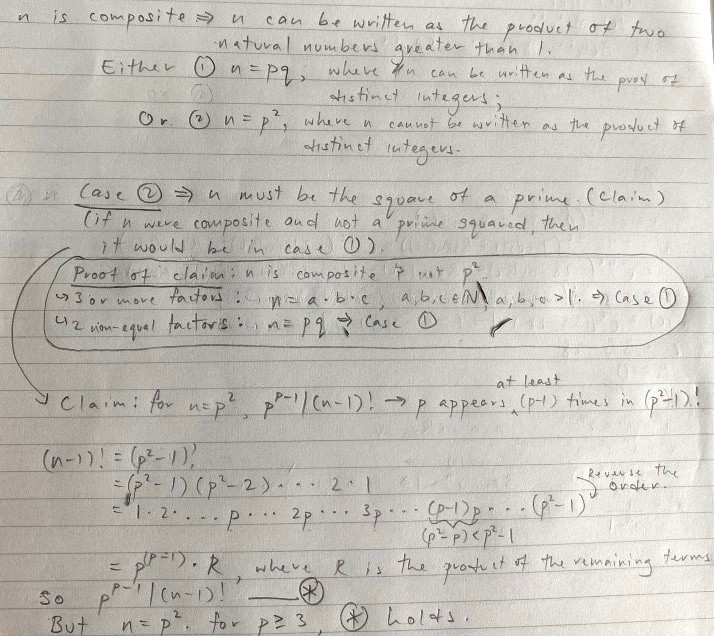Darren Liang's answer to Noob student's Junior College 2 H2 Maths Singapore question.
done
3 Upvotes
clear 0 Downvotes
n is composite, so it is either (a) the square of a prime, or (b) not the square of a prime. (b) leads to the case of distinct factors that you’ve done.
For case (a), we can show that p^(p-1) divides (n-1)!. This implies p^2 divides (n-1)!, for p greater than or equal to 3.
The proof in the photo was before I streamlined the argument, so I suggest you follow the above proof.
Hope this helps :)
For case (a), we can show that p^(p-1) divides (n-1)!. This implies p^2 divides (n-1)!, for p greater than or equal to 3.
The proof in the photo was before I streamlined the argument, so I suggest you follow the above proof.
Hope this helps :)
Date Posted:
3 years ago
Thanks bro u da best



